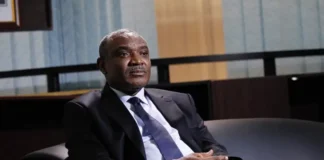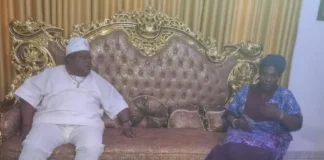Haiti’s President Jovenel Moise called on protesters late Saturday to “go home” after the suspension of a fuel price hike that triggered violent protests and left at least two dead in the Caribbean nation.
In an address broadcast on state television, Moise said he had “corrected what had to be corrected” following an about-face on the price increases earlier that day.
“As soon as you speak, I listen. Because you started sending me this message last night, I received it and corrected what had to be corrected,” Moise said.
“To those watching me tonight, I ask you all: go home,” he said, adding authorities had been directed to clean the streets.
The capital Port-au-Prince and its environs have stood paralyzed since Friday afternoon, with major routes blocked by barricades, some made of burning tires, and some protesters even calling for a revolution in the impoverished country.
Just before the suspension was announced, the leader of Haiti’s lower house of parliament had threatened a government takeover if the fuel price increases were not reversed.
They had only been announced on Friday, while many Haitians were engrossed in a World Cup football match.
“If there is no response within two hours, the government will be considered as having resigned” and the legislature will take charge, Gary Bodeau, the president of the Chamber of Deputies, told AFP.
Prime Minister Jack Guy Lafontant then announced on Twitter suspension of the price increases, writing that “violence and democracy are fundamentally incompatible.”
Even before the fuel price controversy, deputies had already begun a debate on his future, and Saturday’s U-turn could lead to the government’s fall.
On Friday night, the bodyguard of an opposition-party politician died in an altercation with demonstrators in central Port-au-Prince as he attempted to get through a roadblock. His body was then burned in the road.
On Saturday afternoon, an AFP journalist saw a young man shot dead.
A supermarket and other businesses were looted and vehicles burned, mainly in the wealthy areas of Petionville.
Similar angry protests broke out in Cap-Haitien, the second-largest city, as well as in the communes of Les Cayes, Jacmel and Petit-Goave.
Internet service suffered difficulties, although it was unclear whether there was a link to the unrest.
“We’re seeing a little bit more calm right now,” an American, Stacy Librandi Bourne, told CNN from Port-au-Prince where, the news network said, she was among 50 American tourists, children and missionaries unable to leave the Oasis Hotel because of the unrest.









